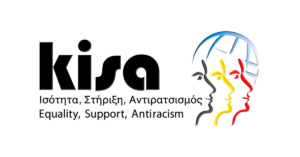On 9 June 2021, I wrote a communication to the Government of Eritrea on the almost 20 year long detention of human rights defender Mr. Dawit Isaak, who has been imprisoned without trial since 2001. The communication was written jointly with seven other UN experts.
Mr. Dawit Isaak is a Swedish- Eritrean human rights defender and journalist, who, prior to his detention, promoted freedom of expression in Eritrea. He was one of the founding members of Setit, Eritrea’s first independent weekly newspaper, in 1993. Mr. Isaak was awarded the Freedom of Press award by Reporters without Borders in 2003, UNESCO’s Freedom of Press Award in 2005, he was nominated for the Sakharov award in 2009 and awarded the Tucholsky Prize during the same year.
While recognising that repeated calls from international and intergovernmental courts and bodies have thus far gone unheeded by your Eritrea, we once again deeply implored that human rights law and international standards be immediately respected to Mr. Isaak and his family.
We expressed our gravest alarm over his prolonged incommunicado detention, with periods of alleged enforced disappearance. We expressed deep concern that his alleged arbitrary detention, without charge and standing trial, is connected to his work in the defence of human rights. The reports of multiple violations in the due process of law, including the allegations of torture and other cruel, inhumane, or degrading treatment, if confirmed, constitute gross violations of human rights.
The following is a shorter version of the original communication.
In May 2001, Mr. Dawit Isaak’s newspaper reported on a series of open letters penned by a group of politicians known as the G15. The letters urged the Government of Eritrea to implement the newly drafted Constitution, hold open elections and promote peaceful democratic dialogue, rule of law and justice.
On 23 September 2001, a number of days following the arrest of G15 members, Mr. Isaak was reportedly detained by two police officers at his home in the city of Asmara. It is not known whether an arrest warrant was presented or whether he was informed of any charges that may have been filed against him. He was sent to prison without trial and has at no point been allowed access to a legal representative or lawyer.
On 19 November 2005, Mr. Isaak was briefly released to receive medical treatment, at an unknown location. He was imprisoned again four days later on 23 November 2005.
On 30 May 2007, the African Commission on Human and Peoples’ Rights (ACHPR) published its findings on Communication 275/03 – Eritrea v. Article 19. The communication lodged by an international non- governmental organisation, in which it stated its concern of the incommunicado detention of Mr. Isaak and 17 other journalists. In its decision, the ACHPR urged the Government of Eritrea to release Mr. Isaak and the other journalists. Other communications concerning the case of Mr. Isaak include: Zegveld and Ephrem v. Eritrea, communication No. 250/02, decision, November 2003; and Isaak v. Eritrea, communication No. 428/12, decision, February 2016.
In February 2009, Mr. Isaak was reportedly sent to at a military hospital as reports emerged that his health condition had worsened. Later that year he was reportedly admitted to Kedeste Mariam in Asmara, a psychiatric hospital. The reasons for this hospitalisation are not known.
On 26 May 2009, the President of Eritrea, Mr. Isaias Afwerki, stated in an interview with a Swedish television channel, “We know how to handle his kind” , and that Mr. Isaak would not be released and would not stand trial. On 10 May 2013, a former prison officer confirmed to a Swedish newspaper that Mr. Isaak was “okay”, the first confirmation that the human rights defender was alive in a number of years.
In a decision based on Communication 428/2018 dated 27 April 2018, the ACHPR issued a decision reaffirming the findings of Communication 275/03, urging the Eritrean authorities to release of Mr. Isaak and the other journalists.
In September 2020, after a number of years of uncertainty about his fate, credible sources informed that Mr. Isaak was alive and being held in Eiraeiro, a remote prison known for its extremely poor conditions and high rate of deaths in custody.
In October 2020, an international NGO filed a complaint with the Office of the Swedish Prosecutor for international crimes, accusing Eritrea’s President and seven other senior Eritrean officials of crime against humanity for holding the journalist Mr. Isaak incommunicado since 2001.
On 12 January 2021, the National Unit for International and Organised Crime, attached to the Prosecutor’s Office in Sweden issued a decision in which it claimed that there was reason to believe that Mr. Isaak had been the victim of crimes against humanity.
There have been multiple reports that Mr. Isaak has been held in solitary confinement and tortured during his detention. There are well founded fears for his life. The authorities have denied any allegations of torture but have not permitted anyone to visit the human rights defender.
At the time of writing this letter, it is still unknown what crimes Mr. Isaak is accused of having committed.



